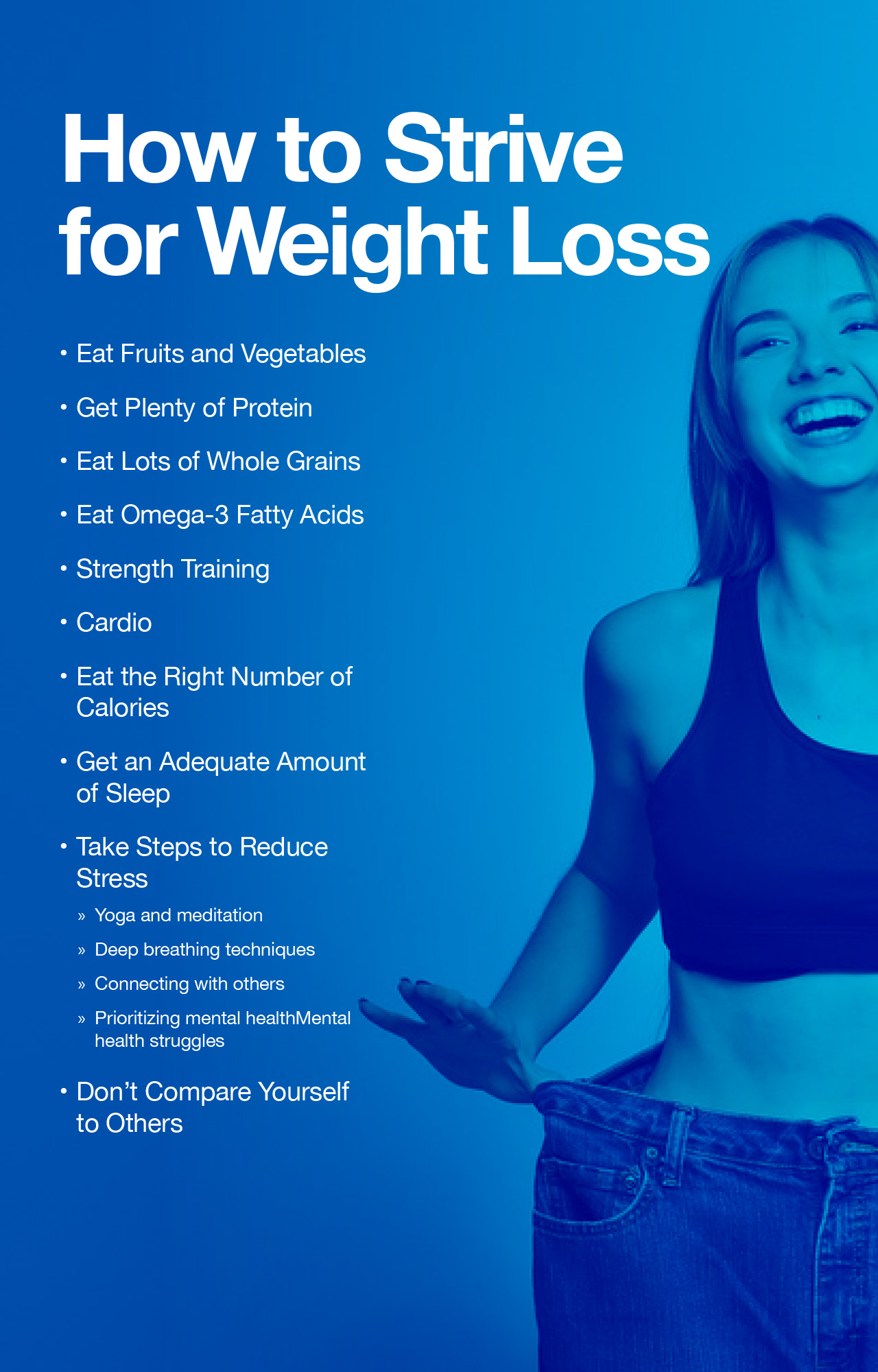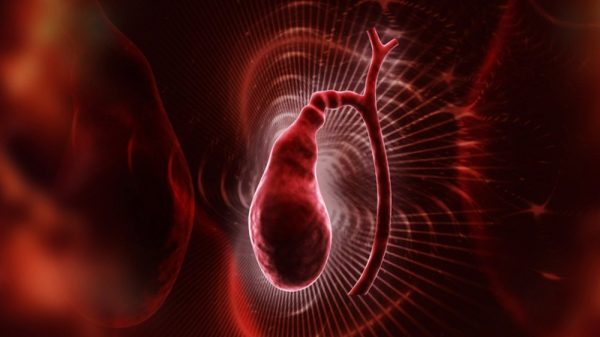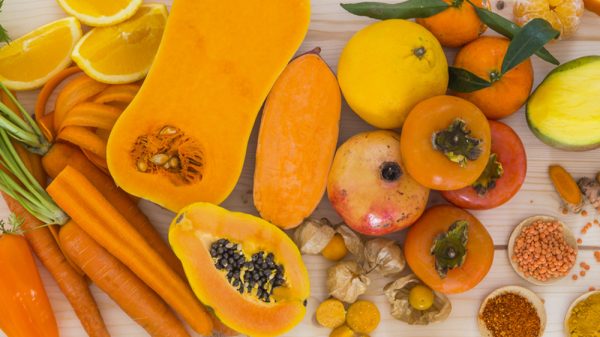Do you set resolutions on New Year’s Eve or New Year’s Day? The new year is a great opportunity for a fresh start and to set new goals. Weight loss and getting healthy are common New Year’s resolutions. If you’re thinking new year new me, you’ve come to the right place! Find out what you can do to improve your health and achieve your weight loss goals.
1. Eat Fruits and Vegetables
Foods that reduce cortisol are those that help lower inflammation in the body and promote a healthy metabolism and weight. Eating the right things helps equip your body with the tools it needs to support weight loss. Fruits and vegetables are packed with healthy ingredients like vitamins, minerals, and antioxidants that help the body function optimally. These micronutrients scavenge free radicals and reduce cellular waste, with the positive impact of reducing oxidative stress and inflammation. Eating a balanced diet that is rich in fruits and vegetables can help reduce your risk for metabolic conditions and cardiovascular diseases.
Examples of fruits and vegetables to incorporate into your diet include blueberries, raspberries, strawberries, apples, oranges, pomegranate, kale, spinach, collard greens, asparagus, and cauliflower.
2. Get Plenty of Protein
Consuming an adequate amount of protein on a daily basis is crucial for supporting weight loss. The building blocks of protein are called amino acids, and they are necessary for the body to synthesize muscle tissue, hormones, neurotransmitters, and enzymes.
In particular, essential amino acids are required on a daily basis in order for the body to function optimally. Essential amino acids include leucine, isoleucine, valine, methionine, histidine, lysine, threonine, tryptophan, and phenylalanine. Getting optimal ratios of these amino acids on a daily basis can help you build and maintain muscle mass. Having a higher percentage of muscle mass ultimately boosts your metabolism and helps you lose weight more efficiently.
Foods that offer optimal ratios of essential amino acids include chicken, beef, fish, yogurt, cheese, and milk. Always be sure to choose low-fat options of meat and dairy, to avoid unhealthy saturated fats.
If you follow a plant-based diet, you can still get the essential amino acids that you need from eating a variety of vegetable proteins. Eating foods like nuts, seeds, beans, and soy products throughout the day can ensure that you’re getting the essential amino acids that your body needs. Examples of foods with plant-based protein include whole-grain bread, walnuts, almonds, chia seeds, flaxseeds, kidney beans, black beans, and tofu.
Alternatively, a high-quality supplement is an excellent choice in order to get more essential amino acids in your diet to support optimal health.
3. Eat Lots of Whole Grains
Incorporating lots of whole grains into your diet can help you fight against high cortisol levels and abdominal obesity. Whole grains are chock-full of fiber that can help lower blood pressure and decrease the risk of heart disease. Eating a diet rich in fiber can also help keep blood sugar levels stable.
Moreover, eating plenty of whole grains can reduce inflammation in the body and improve metabolic function. When we eat lots of fiber, we encourage the growth of healthy bacteria in the digestive tract. When the microbiome is balanced and populated by healthy bacteria, this helps reduce inflammation. Good bacteria feed on fiber and produce anti-inflammatory compounds as a byproduct. These compounds enter the bloodstream and travel throughout the body, improving inflammation.
4. Eat Omega-3 Fatty Acids
Eating high-fat foods is healthy as long as you’re choosing the right fats. In fact, eating a diet rich in omega-3 fatty acids can help encourage fat loss. Omega-3 fatty acids are potent anti-inflammatory agents that help the body’s mechanisms function more effectively.
Omega-3 fatty acids are found in both animal and plant food sources. Omega-3 fatty acids in the form of eicosapentaenoic acid (EPA) and docosahexaenoic acid (DHA) can be found in fatty fish like salmon, mackerel, and sardines. Omega-3 fatty acids found in the form of alpha-linolenic acid (ALA) can be found in foods like flaxseeds, chia seeds, pecans, and walnuts.
5. Strength Training
Strength training is vital for achieving health and weight loss goals because it increases your lean muscle mass. Having more lean muscle mass improves immune system function and boosts the metabolism. Try engaging in strength training several times a week to help boost your muscle mass.
6. Cardio
Engaging in cardiovascular exercise on a daily basis is critical for managing your weight and supporting heart health. Cardio includes anything that gets your heart rate up, like dancing, running, swimming, jogging, and biking.
Regular cardio can improve heart health, lower blood pressure, and burn calories. To benefit from the positive impacts of cardio, aim to do 30 minutes of biking, jogging, brisk walking, or other activity on a daily basis.
7. Eat the Right Number of Calories
Getting the right number of calories you need is crucial for supporting a healthy metabolism and weight loss. Avoid both undereating and overeating. Undereating can cause the metabolism to function more slowly, causing the body to hold onto excess fat. On the other hand, overeating can cause the body to deposit excess energy into the form of fat. As a result, it’s important to eat the right number of calories for your age and activity levels, to support an ideal body weight.
8. Get an Adequate Amount of Sleep
Sleep is crucial to achieving your weight loss goals in the new year. While we sleep, the body works hard to bring all systems back to equilibrium, repair damage, and reduce oxidative stress. However, it can be tricky to get enough sleep while you’re stressed. Racing thoughts, adrenaline, and cortisol can keep us wired throughout the night, only making us feel even worse in the morning. Sleep deprivation simply perpetuates and worsens high cortisol levels, cravings for junk food, and weight gain.
You can improve your sleep and strive for weight loss by establishing a bedtime routine and incorporating relaxation techniques into your daily routine.
9. Take Steps to Reduce Stress
Did you know that mental health and physical health are inextricably linked? If you want to lose weight, stress reduction and self-care are vitally important for metabolic health and weight loss. Here are a few tips for combatting stress on a daily basis:
- Yoga and meditation: Yoga and meditation are techniques that help improve stress, manage anxiety, and improve mental and physical well-being. Both practices help clear the mind, reframe focus, and improve concentration on the present moment. Practicing yoga or meditation for just a few minutes each day can help reduce stress.
- Deep breathing techniques: Deep breathing is a helpful technique for managing the physiological symptoms that accompany an anxiety attack. If you feel a stress-induced anxiety attack coming on, try slowly inhaling through your nose and slowly exhaling through your mouth several times. This technique can be used anywhere and immediately helps slow down your heart rate and lower your blood pressure.
- Connecting with others: Humans are social beings and we need the connection and support of others to feel our best. Make a point of connecting with a loved one at least once per day. Meeting a friend for coffee or FaceTiming a family member can be great ways to connect and unwind after a long day.
- Prioritizing mental health: In some cases, extreme stress and anxiety can be the result of a mental health condition. If you feel that your stress and anxiety levels are unmanageable, it’s important to talk to a mental health professional. Mental health care providers can help you work through stressors, manage trauma, and diagnose and treat underlying mental illness.
10. Don’t Compare Yourself to Others
Your weight loss journey is unique. Don’t compare your own journey to someone else’s you see on social media. Everyone has varying challenges and comparing your journey to someone else’s can derail your progress and create self-doubt. Instead, stay strong in your goals and keep taking steps on your journey.
New Year New Me: How to Strive for Weight Loss
The phrase “new year new me” can be found on T-shirts, GIFs, and memes on social media. But you can make “new year new me” a reality by striving for your dreams and goals. The new year is a great opportunity for new beginnings. If you’ve been meaning to set weight loss as a goal, then now is the time! Instead of setting such a general goal, set specific, smaller goals to improve your daily choices. Over time, these small steps will lead to the life-changing results you want. Happy New Year, and best of luck on the journey towards the new you!
























